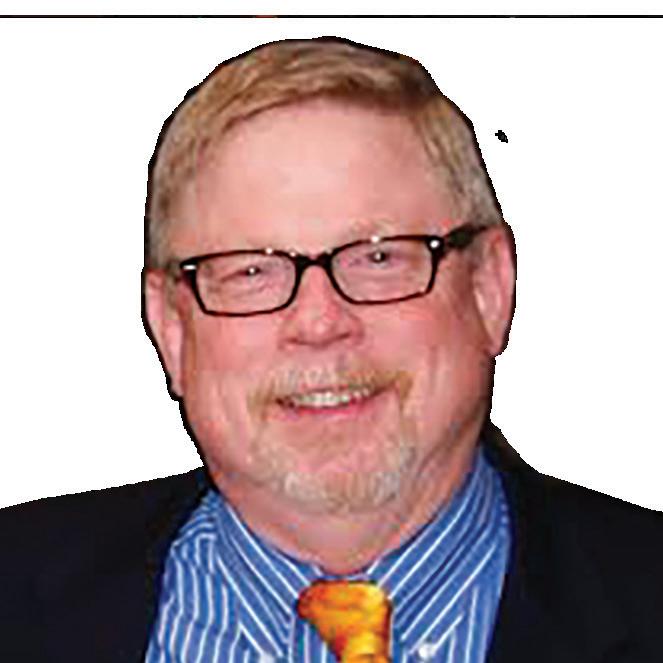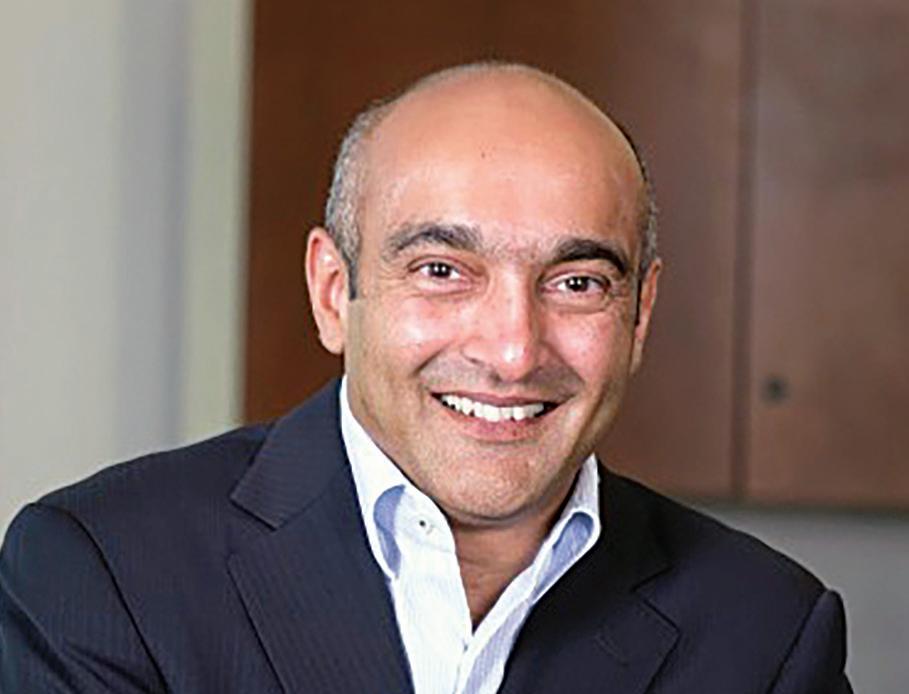ASK AN ALUMNUS
Scott A. Meyers, BS ’76, MS, RPh, FASHP Executive Vice President, Illinois Council of Health-System Pharmacists As the chief executive officer of ICHP, Scott Meyers is responsible for overseeing the day-to-day operations of the council, serves as a liaison to the Illinois State Board of Pharmacy, and is or has served as a member of the Dean’s Advisory Committee at the University of Illinois Chicago, Midwestern University, SIUE School of Pharmacy, Chicago State University, and Roosevelt University Colleges of Pharmacy. He is a member of the Board of Governors of the Pharmacy Technician Certification Board, Inc., which has certified over 700,000 pharmacy technicians nationally since 1995 and is currently its vice chair. Meyers currently serves as a voting member and vice chair of the Collaborative Pharmaceutical Task Force appointed by the Illinois General Assembly to address a variety of issues concerning updating the Illinois Pharmacy Practice Act and Rules.
As a pharmacist, how can I best prepare to adapt to the inevitable changes ahead in the next 20 years?
What was the most important thing you learned while in pharmacy school? Who has influenced your career?
Be flexible and willing to take on new responsibilities. Always look to learn new things from new people, places, and experiences. Wherever you land, always look outside that environment to help find solutions to problems, answers to questions, and for friends who can help you and who you can help too! You can work at a place for 20 years and still be well informed and connected if you reach outside to others. But if you stay in one place and only look for solutions inside, you will eventually develop tunnel vision and lose perspective on future change.
I’d like to say that it’s not what you know but who you know, but that’s not completely true. What I learned is that you don’t really know what you have to know until you get where you want to go. What I’m saying is that if you want to be a good clinical practitioner, you obviously need to know the therapies inside out, but if you want to be a great clinical practitioner, you also need to know how to treat patients, work well with coworkers, collaborate with physicians and administrators, and appreciate what everyone on the team contributes. If you want to be a good manager, you need to know how to manage people, but if you want to be a great leader, you need to have a vision, build up and trust your staff, and still retain enough clinical knowledge to understand what the patients need.
How does your pharmacy degree inform your leadership style? Because I graduated 40 plus years ago, my degree made a huge impact on my early years within the profession. It taught me to serve my patients with compassion and caring. It taught me to consider alternatives when you hit a wall. And it taught me that the degree itself was merely the ticket into the game and that where I sat or what position I took on the field was up to me. It helped me choose to be a player and not just a spectator.
38
T H E P H A R M A C I ST
P H A R M A C Y.U I C . E D U
As for who influenced my career? Probably the first person was assistant dean Conrad Bloomquist, who convinced me to attend UIC COP when I was a freshman at U of I in Champaign-Urbana! He was a zoologist; he wasn’t even a pharmacist. But he was warm and caring, and we hit it off the first time we met. The most significant influence, though, from UIC and later from ASHP, was Dr. Henri Manasse. I think I had Henri as a professor in four or five classes my last year in school, and we truly connected. He made me stretch, work harder, and most importantly, think more than I probably would have for any other instructor. Then






